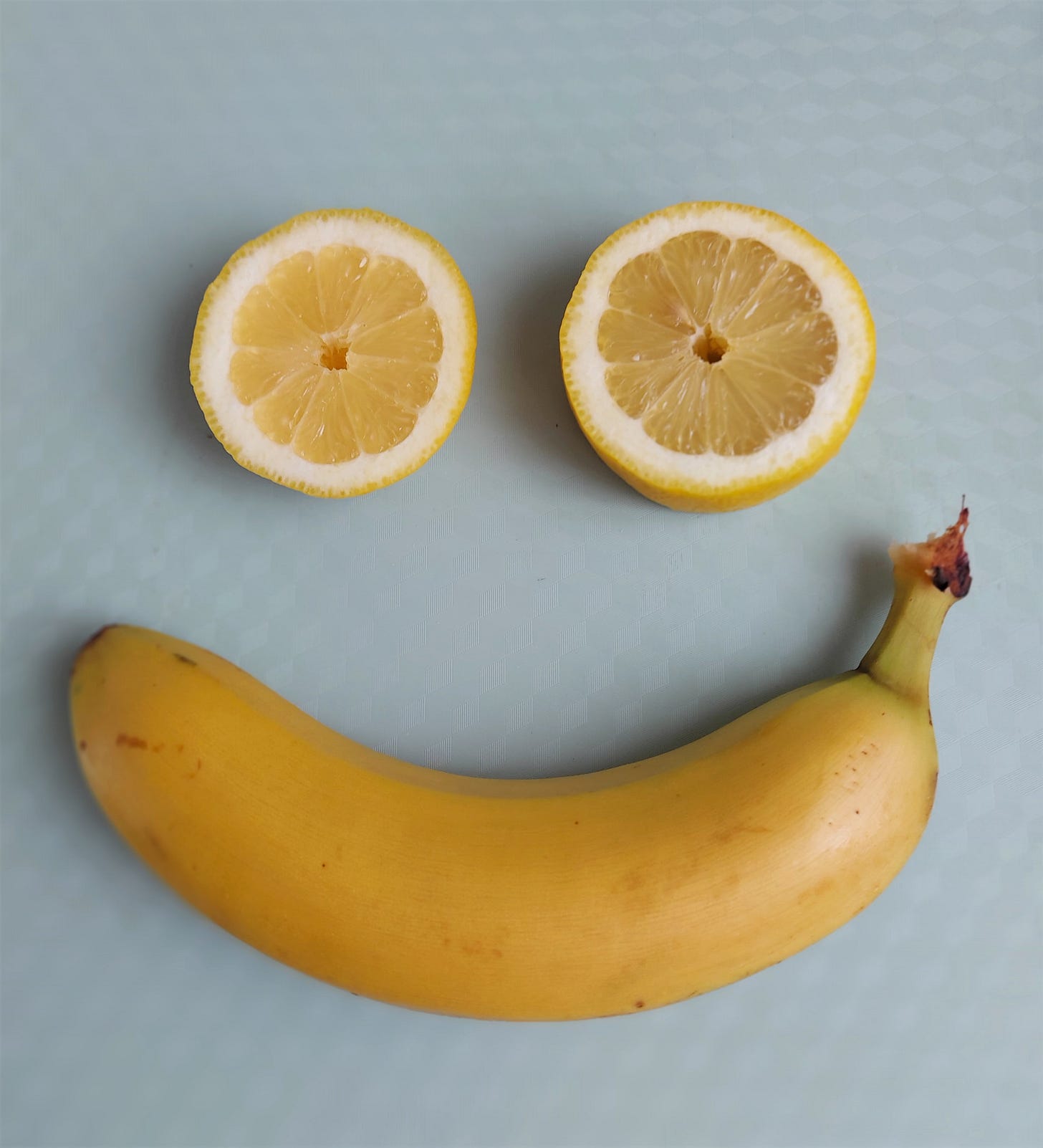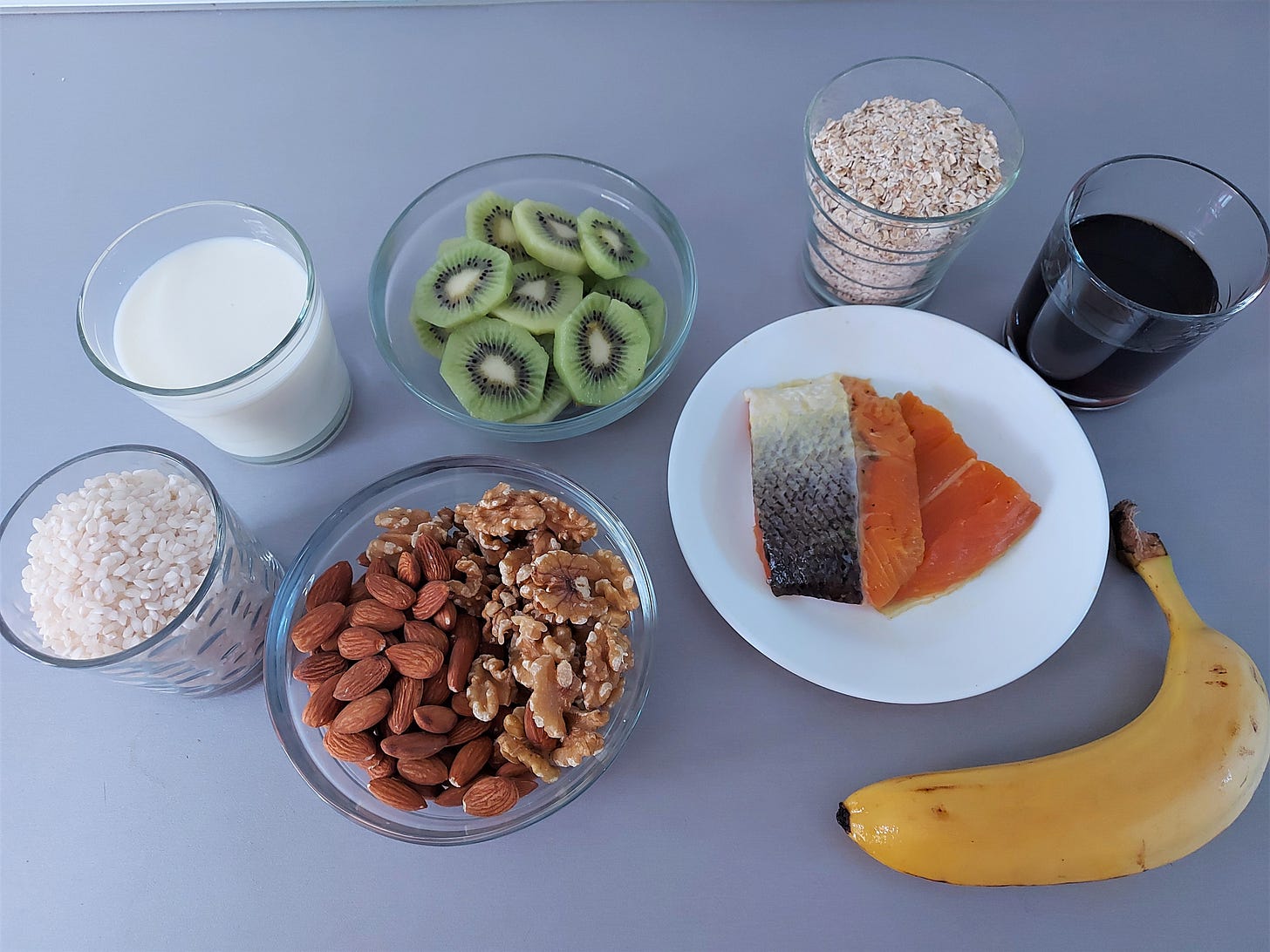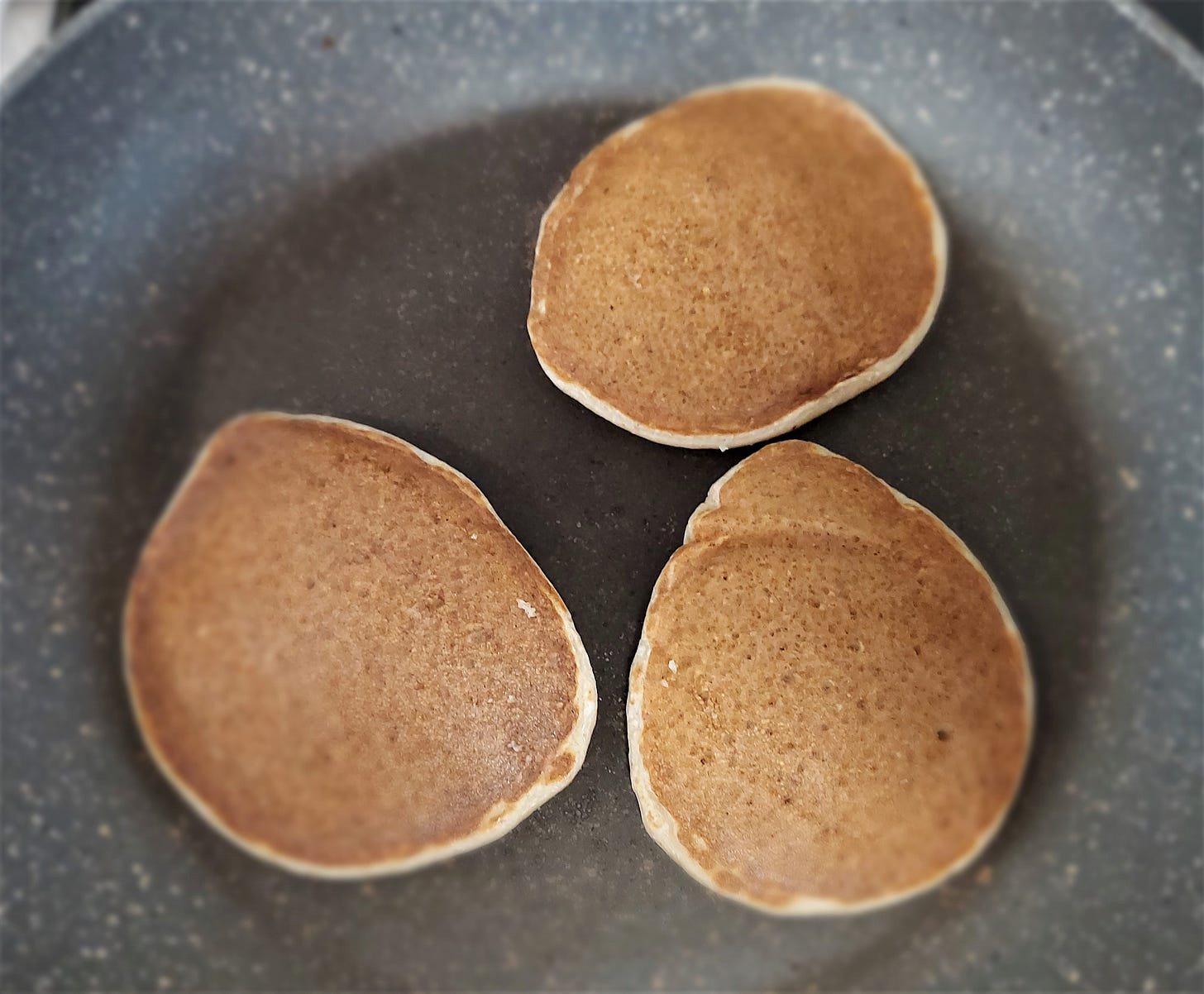It's Bananas
5 tips for a better night's sleep
Sleep is the body’s recovery phase of the day. It is when the brain can recharge and the muscles repair. Getting adequate sleep is very important for a long and healthy life. A few adjustments can dramatically improve your sleep quality.
We are all familiar with the jolt we get from a cup of coffee or the sleepiness that accompanies a heavy meal. Good food habits can help maximise the hours you spend sleeping.
Our sleep cycle is regulated by melatonin. This hormone is made naturally by the pineal gland, located deep within the brain. When melatonin levels are low, sleep is affected and the levels need to be increased (naturally or artificially). Melatonin-rich foods are sleep-promoting and supply nutrients naturally to relax the body, helping one to fall asleep and stay asleep.
To that end, here are 5 tips for a better night's sleep ...
1. Don’t go to bed too full or too empty
Three hours before bed is a good time to stop eating. It takes 3-4 hours for your stomach to empty after eating. While eating late can feel satisfying, there may be negative effects. These include digestion issues, acid reflux, nightmares, or even long-term weight gain. A late-night snack e.g. sugary cereal, also means your body has to increase its core temperature to digest it.
2. Too hot to sleep?
The body temperature needs to drop slightly before you can fall asleep. This coincides with the release of melatonin and the slowing down of the metabolism. A cool – but not cold – sleeping environment is ideal to have a good night's sleep.
During sleep, body temperature continues to fall, reaching its lowest point in the early hours of the morning and then gradually warming up as morning approaches. One 2012 study found that the temperature of the room where you sleep is one of the most important factors in achieving quality sleep. A warm or muggy bedroom doesn’t just make it more difficult for you to cool down and fall asleep. It also makes it harder to stay asleep.
3. Exercise is great but not too close to bed
Similar to digestion, exercise raises body temperature. Any exercise 2 hours or more before bed is hugely beneficial, releasing a cascade of hormones that will help you rest. After that, allow enough time to restore resting body temperature before bed.
4. Technology & sleep
Studies indicate that screen time before bed can increase the amount of time it takes to fall asleep and also reduce sleep quality. This happens for two reasons. Firstly, exposure to the blue light that screens emit damages the pineal gland which should be giving you a melatonin blast to make you sleepy before bed. Secondly, the stream of information that you get from these devices keeps you alert and wakeful and less likely to feel sleepy.
5. Eat yourself to sleep
Certain nutrients and hormones help promote sleep. Tryptophan, found in fish, promotes serotonin production. Melatonin (found in dairy and cherries) makes you sleepy, potassium (found in bananas) and magnesium (also found in bananas and almonds) help promote muscle relaxation.
One study conducted by the USDA found that 58 percent of patients who suffered from insomnia also had low levels of magnesium. These patients were consuming less than the Estimated Average Requirement of magnesium in a healthy diet. Researchers found a high probability of a connection between low magnesium and poor sleep.
Bananas
Bananas contain melatonin, tryptophan, vitamin B6, magnesium & potassium –which are all great for producing serotonin and helping you sleep. The magnesium also helps with hormone balance and detoxification. While a banana is a great food choice, the banana peel is actually the magic ingredient. It has even more potassium and magnesium than the banana itself! … Try the banana tea recipe below.
Milk
Milk is one of the best dietary sources of melatonin. It also contains the amino acid tryptophan, which increases concentrations of melatonin and serotonin and helps you drift off to sleep easier. Almond and coconut milk are good choices if you want to go dairy-free. Even though they don’t contain as much calcium, they’re both high in magnesium which can help you fall asleep faster.
Fish
Fatty fish like salmon and tuna are not only melatonin-rich foods, but they’re also high in vitamin B6, omega 3 fatty acids, magnesium, and vitamin D – all of which are important for regulating serotonin, promoting healthy sleep and functioning better throughout the day.
Tart Cherries
These cherries are sourer than other cherries that you are used to. Not only are they high in melatonin, but tart cherries are also rich in anti-inflammatory compounds that can help keep you healthy.
Tart cherry juice is also a melatonin-rich food, but watch out for added sugar. According to one study examining seniors with insomnia, drinking tart cherry juice increased participants’ sleep time and sleep efficiency. A compound in the juice, procyanidin, increased tryptophan availability in participants and also reduced inflammation in their bodies.
Kiwis naturally contain serotonin, a neurotransmitter that, when levels are low, may negatively impact sleep quality. In one study, people who ate two kiwi fruits each day for four weeks experienced increased total sleep time and sleep efficiency.
Nuts
Many nuts including cashews and almonds contain melatonin, but pistachios surprisingly have the highest amount in this regard.
Rice
While some carbohydrates like sugary food or drink can potentially harm your sleep, rice notably does not. Its melatonin and tryptophan content make it conducive to sleep.
Oats
Like rice, oats are a good carbohydrate that can help lead to better sleep. Whole oats are a great source of melatonin, as well as tryptophan. Oats are also high in fibre, B vitamins, and lots of minerals.
A bowl of porridge is a great way to start your day, and it can be a great way to help you sleep too!
Tasty Banana Recipes
Recipe #1 - Banana Tea
Move over banana bread, it’s time for banana tea!
Making tea from a whole banana is a remarkable way to get all its sleep-promoting nutrients. Drinking banana tea relaxes the blood vessels and muscles, and helps you fall asleep more quickly and stay asleep longer. After drinking the tea, you can eat the mushy banana if you want – but you may not want the sweetness so close to sleep. (See note 1 below).
Serves 1
Ingredients
1 organic banana (if not organic, scrub the outside of the banana)
Enough water to cover the banana
Cinnamon stick (optional)
Method
Slice the banana into 2-3 pieces.
Place in a small saucepan with enough water to cover the banana.
Boil the water & simmer for 10 minutes.
Strain the liquid into a cup.
Notes
The ripeness of a banana influences how much sugar it has. A greener banana has less sugar and more fibre.
If the banana is very ripe i.e. yellow with brown spots, it can cause a blood sugar spike. Once your sugar level drops again, it might disrupt your sleep and cause you to wake up in the middle of the night.
No one wants to throw out food but keeping a stock of nearly ripe bananas can be tricky. Placing them in the fridge will slow down the ripening process but you can still end up with ones that don’t look their best. These can be peeled, wrapped in plastic, and frozen. They are a great ingredient for smoothies, ice creams, etc.
Recipe #2 - Healthy Banana Pancakes
Serves 6
Ingredients
1½ cups oat flour (see notes)
2 tsps baking powder (for fluffier pancakes)
2 ripe bananas, mashed
1 cup almond milk (or dairy)
2 eggs
1 tsp vanilla extract
Olive oil for cooking
1 Tbsp maple syrup (optional)
Method
Add oats to a blender, pulse for a few seconds until they turn into powdery flour.
Add the rest of the ingredients to the blender and blend everything until smooth.
Heat a non-stick pan.
Pour about one-third of a cup of the mixture into the pan (oil isn’t essential).
Cook on one side until bubbles appear (about one minute).
Flip over the pancakes to cook the other side.
Serve with maple syrup if extra sweetness is required.
Notes
See how easy it is to make oat flour in a previous blog post, “Have your cake & eat it”.
If you prepare the batter ahead of time, it’s fine to store it in the fridge overnight. The mixture will thicken quite a bit and need to be diluted before cooking.
Enjoy!!
Disclaimer
This blog is for informational purposes only and should not be construed as medical advice. If you have any questions about your nutrition plan, please consult your doctor.










The banana pancakes look delicious -- will try this recipe soon. Thanks.